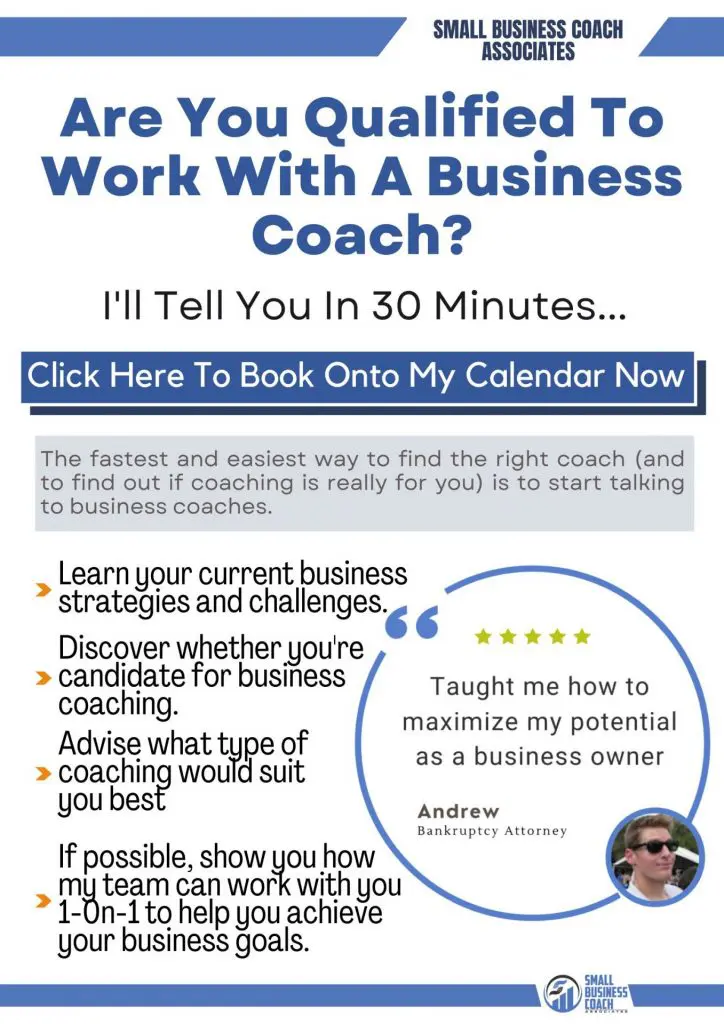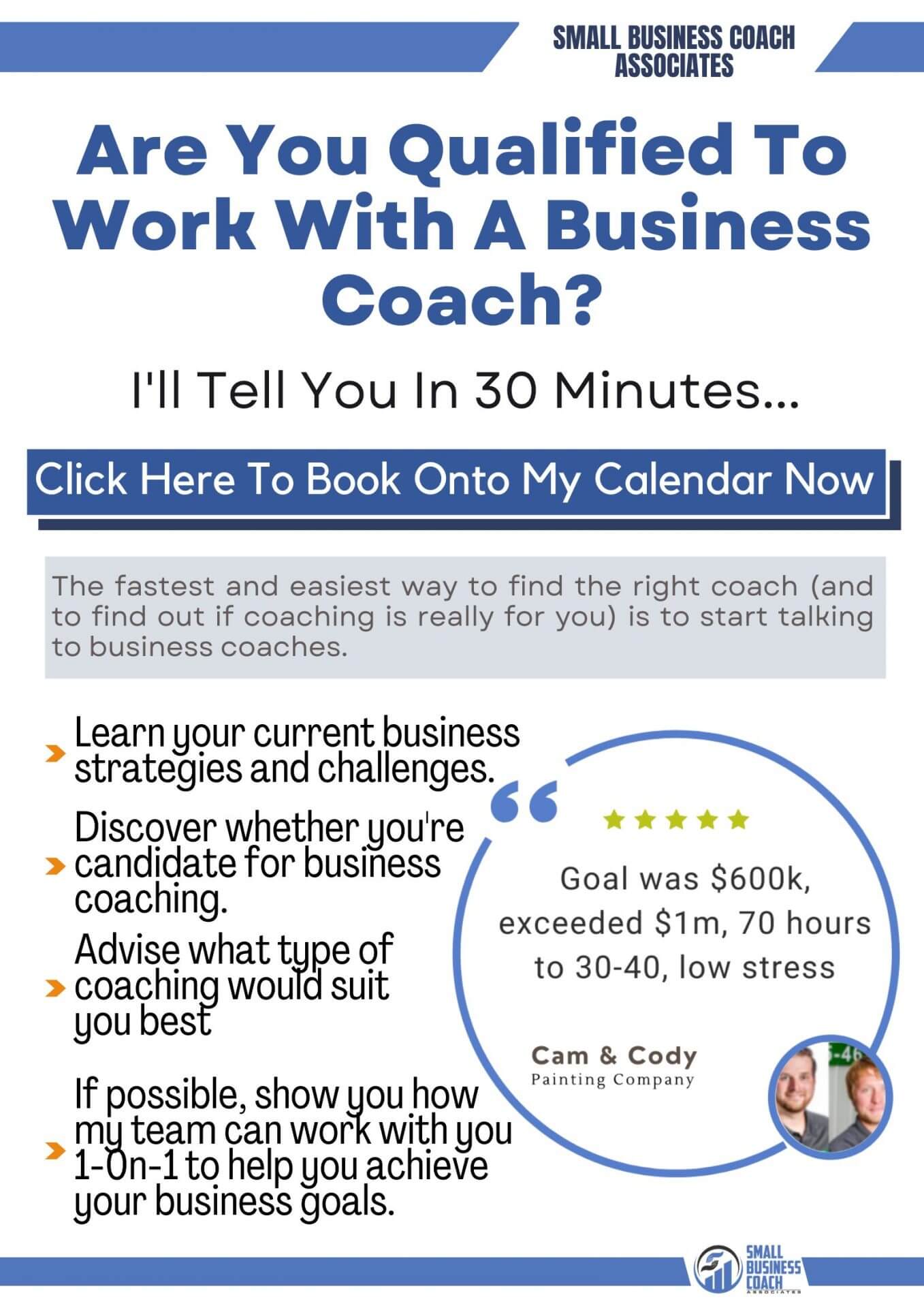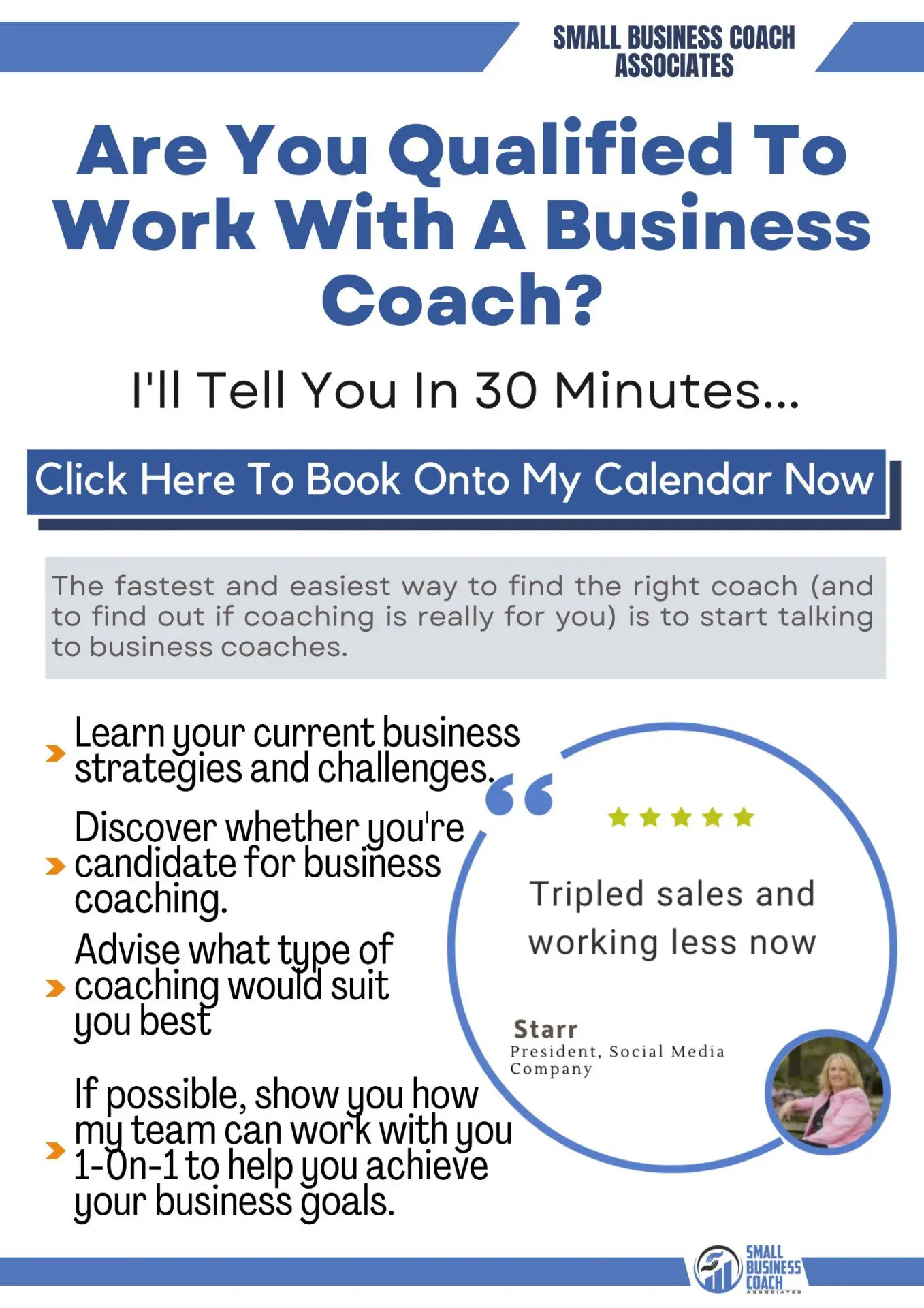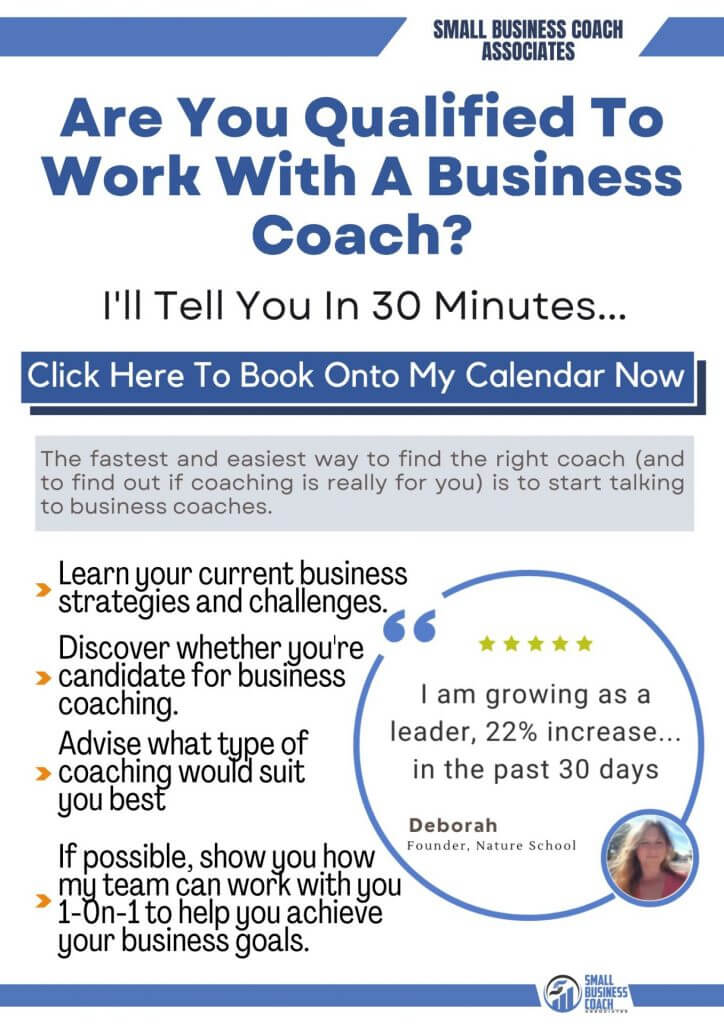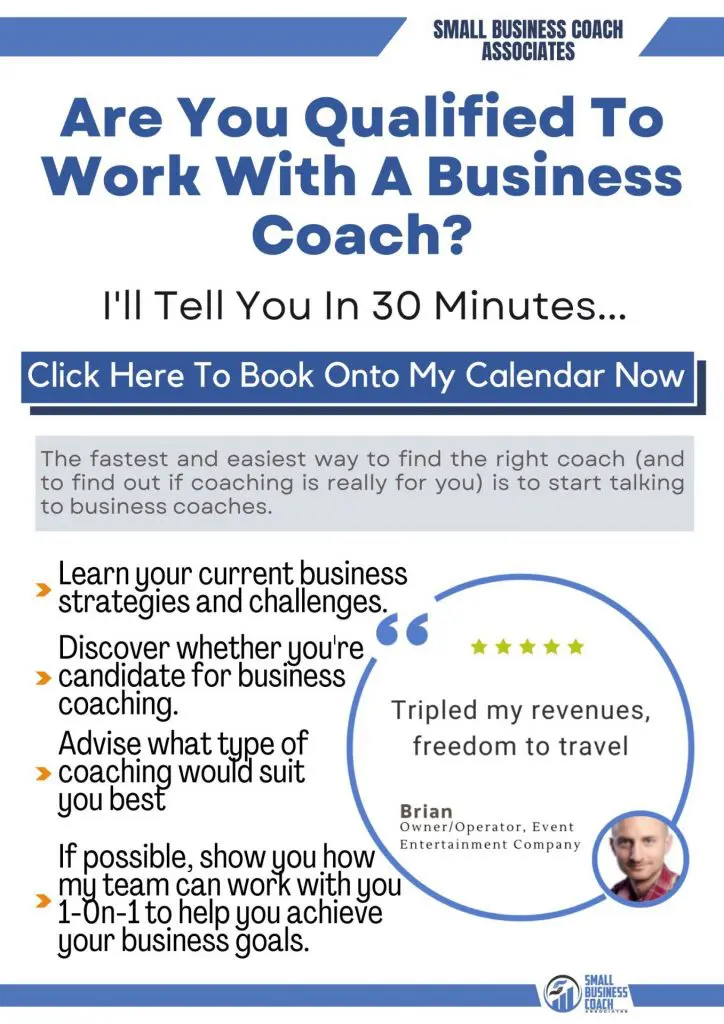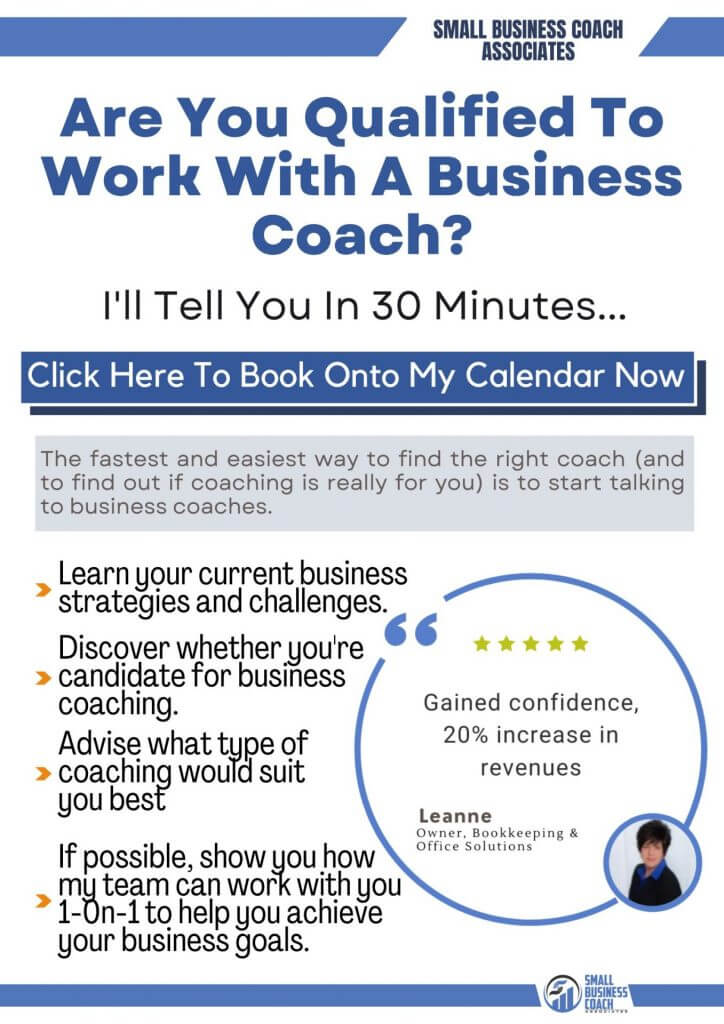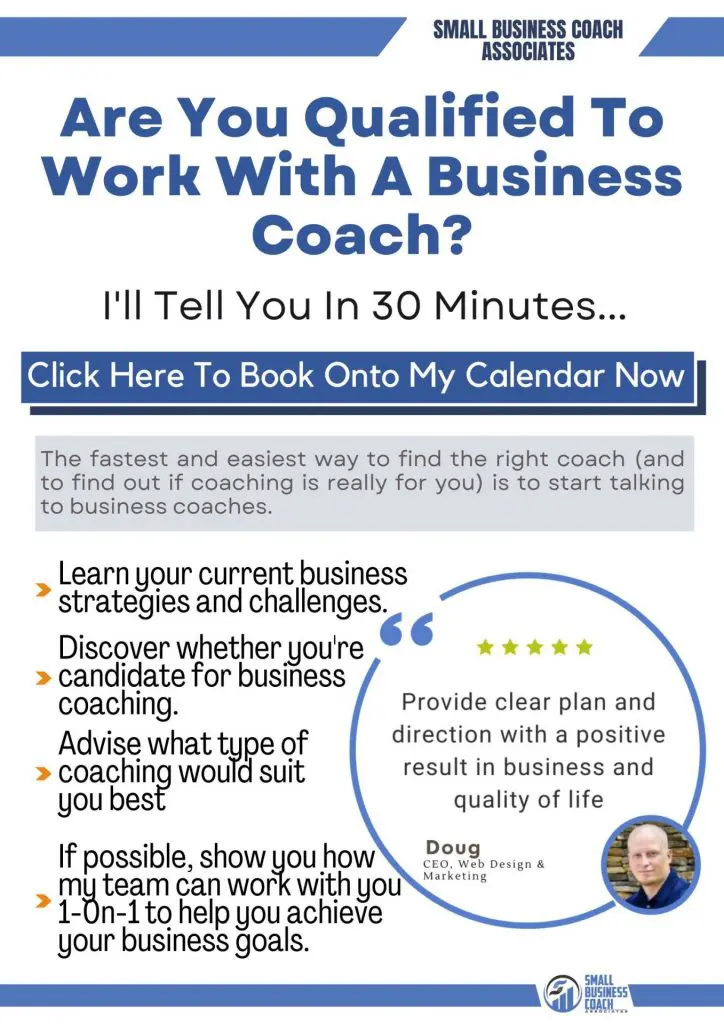Make the wrong choice of consultant for your business, and you’ll be cursed with a fate worse than death! Don’t let this happen to you – carefully research potential consultants before making any decisions.
There are a lot of factors to consider when choosing a business consultant. You want someone knowledgeable and experienced, but you also need to be comfortable with them and feel like they understand your business.
If you’re looking to break into the world of consulting in 2023, our last blog post has your back! We discussed several fantastic firms that will best help launch your career and even shared some invaluable information on types of consultants and services.
On the other hand, finding a small business consultant isn’t always easy, but with the right guidance, you can find the perfect fit for your needs. Here are some questions that you may have been asking yourself.
How do I find a good small business consultant near me?
When looking for a business consultant, it is important to find one who has the experience and qualifications necessary to provide you with the best possible advice. Before deciding on any particular consultant, take some time to research their background and read reviews from other clients. Ask around in your network of business contacts if they have any recommendations.
Check the credentials of the consultant you are considering. Make sure they have qualifications in business consulting and related fields, such as accounting or finance. Ask them to provide references so you can speak to others who have hired their services in the past.
1. Do your research
Researching is the first step in finding a good business consultant near you. There are a variety of ways to do this.
You can ask your friends and family: Reach out to those you know and trust for referrals. They may have used the services of a business consultant before or can point you in the right direction.
2. Check Online Reviews
Read reviews on social media, Google reviews, Yelp, and other websites to get an understanding of the quality of service for consultants in your area.
3. Look at Consultant Credentials
Look for professionals with the proper credentials and experience in various industries. This will give you an indication of how well they understand business fundamentals, strategies, and practices.
4. Set up Interviews
Reach out to consultants that interest you and schedule an interview. During this time, you can ask questions about the consultant’s experience and approach to consulting. You can also get an understanding of their fees and payment terms.
5. Compare Options
Do not be afraid to compare different consultants before making your decision. Compare services provided, rates, experiences, and credentials to find the one that is the best fit for your business.
6. Consider your needs when looking for small business consultant services
Always consider what you need their help with most. Do you need help with marketing, financing, operations management, or something else? Knowing the type of consulting services you require will ensure you find the right person for your business needs. It can be tempting to look for someone with a wide variety of skills, but you may be better off hiring separate people with expertise in different areas. This will ensure that the people you hire have the right skills and experience to help your business succeed.
| Pro-Tip: Grab 30 minutes on my calendar to ask any questions you have about business coaching. I’ve been a business coach (and business broker) for over 20 years. I also have a business coach of my own, so I know what successful coaching looks like on both sides of the table.~ Alan Melton, Small Business Coach Associates |
How much does it cost to hire a business consultant?
The cost of seeing a business consultant depends on the type of services you require and the experience level of the consultant. Generally, consulting fees range from $50 to $500 per hour. Some consultants charge fixed rates for project-specific work or offer monthly retainer packages. Make sure you discuss all payment options with the consultant before agreeing to any services, and always get a written agreement outlining all terms. Additionally, compare the pricing options of the small business consulting services that you are considering. This will give you an understanding of which one is the most affordable for your business needs.
What questions should I ask a consultant?
When interviewing a potential consultant, it is important to ask the right questions. Here are some examples of what you should ask:
- What experience do you have in my industry?
- How have you helped clients like me in the past?
- Are there any other services that you offer?
- What are your rates and payment terms?
- Do you have references I can contact?
- What is your process for working with clients?
- How often do you communicate progress to clients?
Questions like these will help you better understand the consultant’s skills, experience, and approach. Ultimately, this will help you make the best decision for your business.
Is it worth hiring a business consultant?
Yes, it is definitely worth hiring a business consultant. A good consultant can provide invaluable guidance and advice on how to grow your business and help you identify any areas of improvement that need to be addressed. They can also help you develop strategies for achieving goals more efficiently and navigate the complexities of running a business. With their knowledge and expertise, they can help you maximize your success and achieve the best possible results. Overall, having a business consultant on board can be a big asset to your business.

How do I know if consulting is right for me?
Consulting can be a great career path for many people, but it may not be the best fit for everyone. The best way to know if consulting is right for you is to take some time and think about what kind of work excites you and what skills you have that could translate well into a consulting role. Consider the types of problems you like to solve and the challenges you enjoy tackling.
Ask yourself how well your strengths, interests, and experiences match up with consulting work. If you think consulting is a good fit for you, then look into it further and do some research on the industry. It’s also helpful to talk with people who are already in consulting roles or with those who have experience in the field. Taking some time to explore consulting can help you decide if it’s the right path for you.
You can also take time to read our blog mentoring vs. business coaching, which is going to give you some hindsight of the difference between the two.
Locating A Business Consultant Near Me
Has never been easier, thanks to the rise of online business consultant directories. These directories allow you to quickly and easily locate a business consultant in your local area who can provide advice and guidance on matters such as marketing, finance, operations, and growth strategies. Many of the best business consultants have decades of experience helping businesses grow and succeed in their respective industries.
Consultant Locatoris a powerful web-based software tool that helps companies and businesses find the most qualified consultants for their projects. With an extensive database of skilled professionals, Consultant Locator simplifies finding the ideal individual for a given task. This platform offers advanced search capabilities, allowing users to locate consultants who meet quickly and easily to their specific criteria. |
| Another useful tool is the Business Adviser Finder, which connects businesses with an extensive network of experienced business consultants worldwide. This platform provides access to a wide range of expertise in marketing, finance, operations, growth strategy, and more. Once you’ve identified the ideal consultant for your business’s needs, you can use the platform to connect with them and schedule a consultation. |
is another great resource for finding a business consultant near you. LinkedIn allows users to search profiles by location and industry expertise, making it easy to find consultants who are familiar with your particular market or field of interest. Additionally, many consultants post their contact information on their LinkedIn profiles, allowing you to quickly and easily connect with them.

Upwork is also a great resource for finding a business consultant near you. This platform is a great way to quickly find and hire independent consultants who can provide business advice and guidance. All of the Upwork consultants have been vetted for quality assurance, making it easy to find someone with the expertise you need. Additionally, many of these consultants list their hourly rates, so you can easily determine if it’s within your budget.

Finally, Google My Business is an easy tool that you can use. All you have to do is to make sure that your location is set and just type in the search box “business consultant near me,” and you’ll be able to see a list of local business consultants. This will allow you to easily compare the services and prices that each consultant offers, as well as view their reviews and ratings.

How to Tell if A Consultant Is Compatible?
If you hire a business consultant that does not align with your vision, beliefs, and corporate values – it can result in major issues. Thankfully, there are measures to confirm whether the mentor is compatible with your organization’s goals:
- Are you feeling energized and inspired following our consultation?
- Does the mentor provide you with comfort and clarity, or do they leave you feeling confused?
- Are you confident that working with them would be a smooth process?
- Have you taken into account the quality of your connection with them and whether you can confidently rely on them to manage your company?
Asking yourself the following questions will help you find a business consultant that is well-suited for your needs.
What Type of Mentoring Do You Prefer?
Mentoring comes in various forms – traditional one-on-one, distance mentoring and group mentoring.
Traditional mentor relationships usually consist of two people meeting face-to-face on a regular basis to exchange ideas about life, career paths and ambitions.
Distance Mentorships bridge the gap between physical boundaries by utilizing communication technologies such as telephone or video chat via zoom or skype. Today, this type of mentorship is more popular than ever, thanks to its convenience and accessibility. 
At Small Business Coach Associates, we understand that distance should not be a hindrance to the mentoring process. That is why we specialize in giving mentoring and coaching services via zoom or telephone. We provide one-on-one guidance to ensure that you are successful and well on your way toward achieving the goals of your small business.
Group Mentorship enables three or more individuals to come together frequently for collective discussions regarding their lives and professional aspirations.
Depending on your needs and objectives, each form of mentoring has its own set of advantages and drawbacks. For the most intimate experience, traditional one-on-one mentoring is the way to go but it can be costly in terms of time as well as money. On the other hand, distance mentoring may not have that same level of a personal touch but makes up for it by being easier to use and less expensive. Last but definitely not least, group mentoring might be less personalized yet you gain more than just one mentor’s insights which are often invaluable!
Is A Business Coach The Same As A Business Consultant?
No, a business coach and a business consultant are not the same. A business coach is focused on helping individuals or businesses develop strategies for success, while a business consultant provides advice and expertise on specific matters.
Business coaches help their clients identify needs, set goals, develop plans to reach those goals, and push them to stay motivated in the process. They provide advice, support, and feedback to the client to enable them to achieve their goals.
On the other hand, business consultants provide expertise and specialized services that help organizations improve performance and solve problems. They assess current operations and recommend changes or solutions for improvement. Their expertise can range from marketing strategy to financial management.
The advantages of hiring a business coach and a consultant are similar:
They provide expertise and advice on specific matters, help organizations improve performance, develop strategies for success, and keep the organization motivated. However, the main difference is that while a consultant provides specialized services to an organization, a business coach focuses more on helping an individual or business development strategies for success. Whether you hire a business coach or a consultant should be based on an organization’s needs and goals.
It’s important to note that it is common for organizations to benefit from a business coach and a consultant, as each service brings unique advantages to help reach the desired goals. Working with a coach and consultant can ensure that the organization is getting the specialized support they need to reach its full potential.
Here are some lists of business coaches that you should check out: For more in-depth information on this topic, click here to our The Best Way To Find Business Coaches Near Me or 45 Best Business Coaches To Follow. Click now and find out who could be the key player for your business today!

Book Complimentary Strategy Session With Us
Let’s talk about your business and the issues you are facing! We will investigate your company’s aims, recognize areas for growth, recommend solutions to bring success to fruition, and offer advice on how best to reach your goals. Furthermore, if you need direction in deciding whether consulting or coaching would benefit you most, we can help out there too.
Hire a Coach If
You want to achieve specific results, or if you are looking for an experienced professional who can help you get organized and focused on achieving your goals. A coach is a great resource that can provide guidance, assistance, and motivation when it comes to both personal and business matters.
Hire a Consultant If
You need help with a specific problem or task. Consulting experts bring their experience, knowledge, and resources to the table and can offer you recommendations that are tailored to your needs. They can provide a valuable outside perspective on any project or issue you may be facing, as well as strategies for finding solutions.
Conclusion
In conclusion, finding a business consultant near you has never been easier with all of these tools at your disposal. With just a few clicks or keystrokes, you can easily find the ideal consultant for your business needs. Whether you’re looking for advice on marketing, operations, finance, or growth strategies – there’s sure to be a consultant out there who can help you reach your goals.






